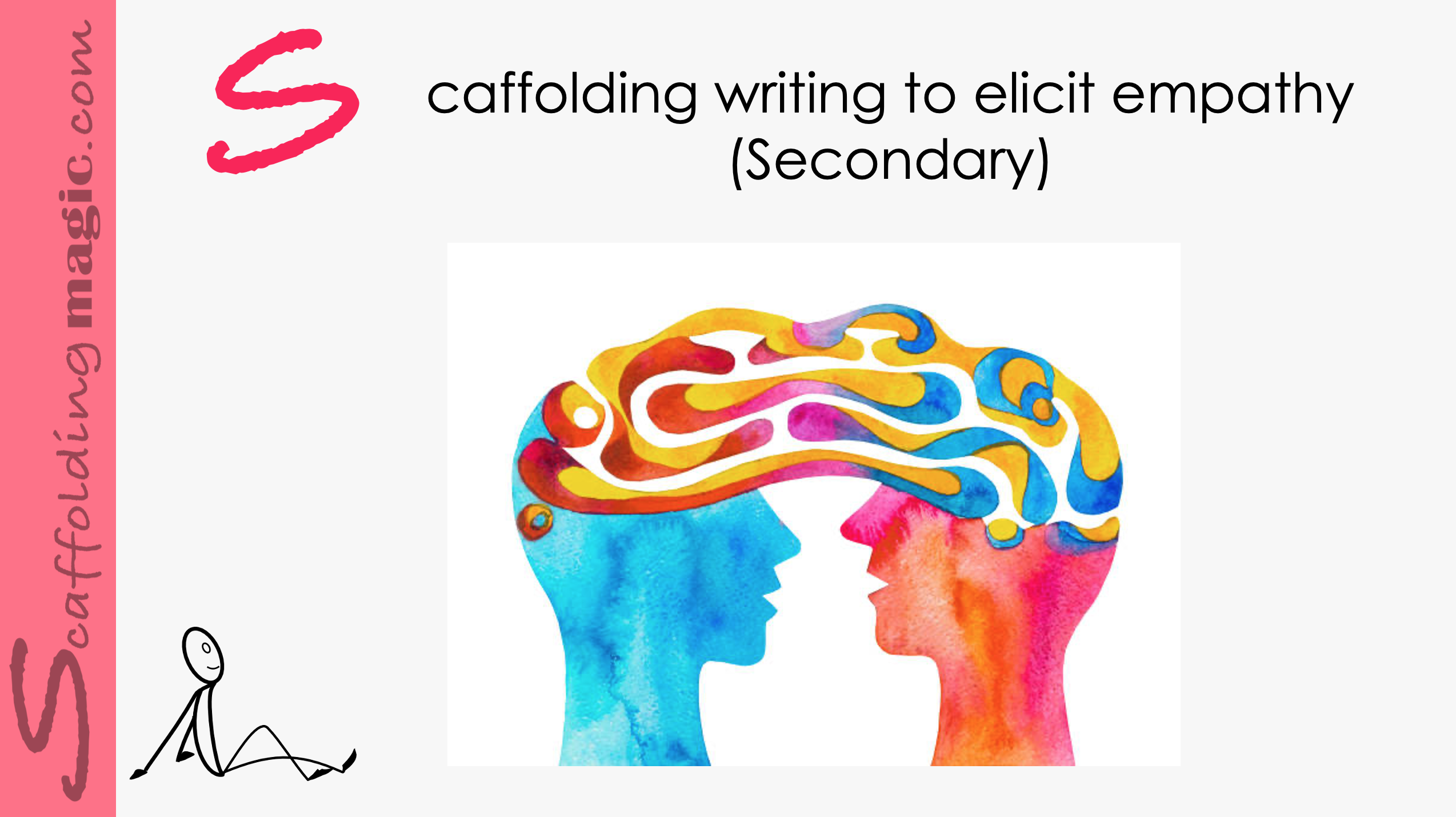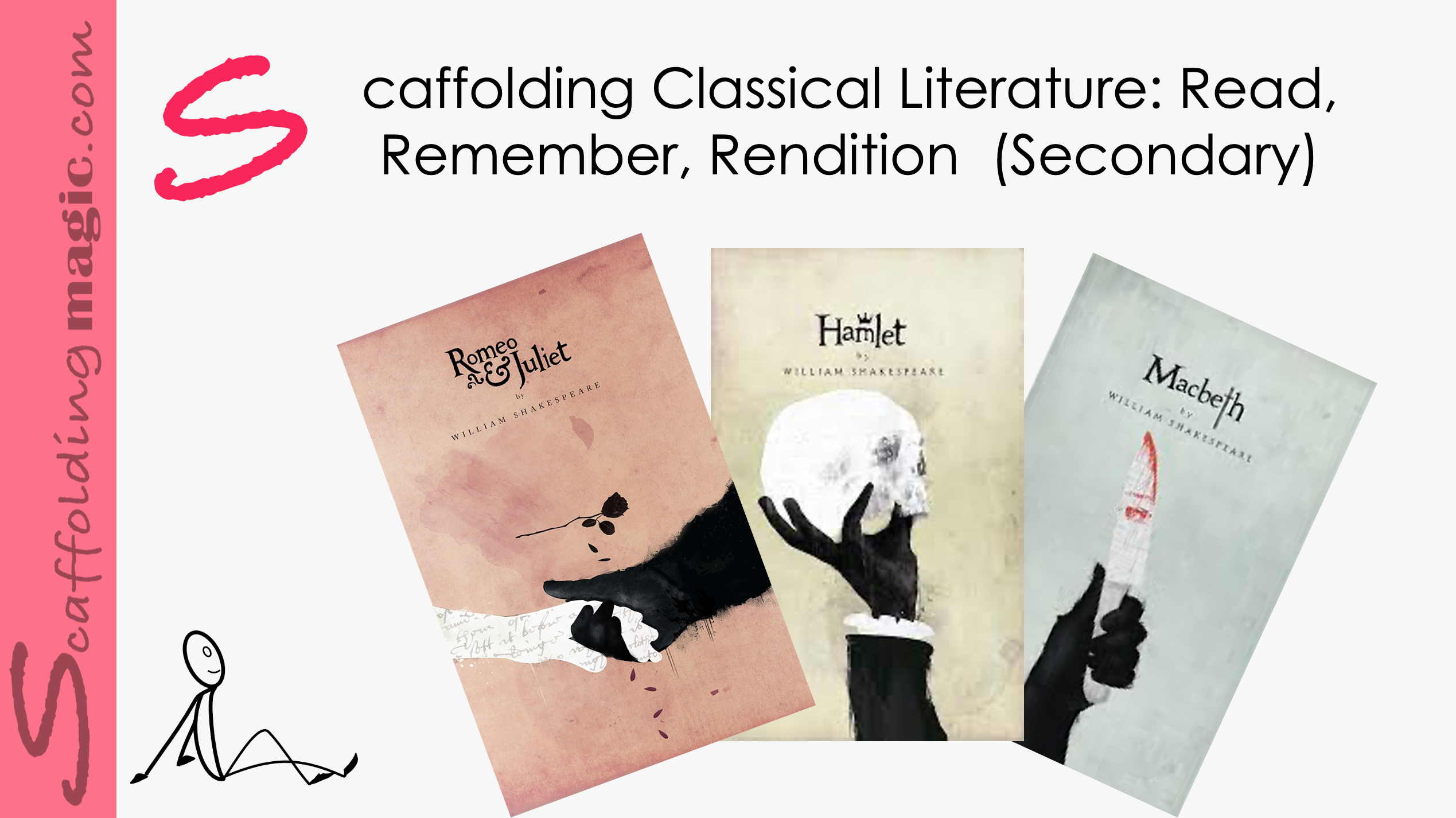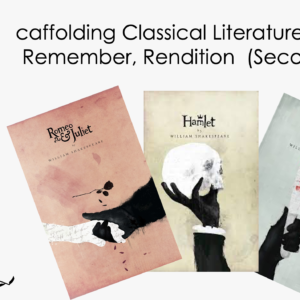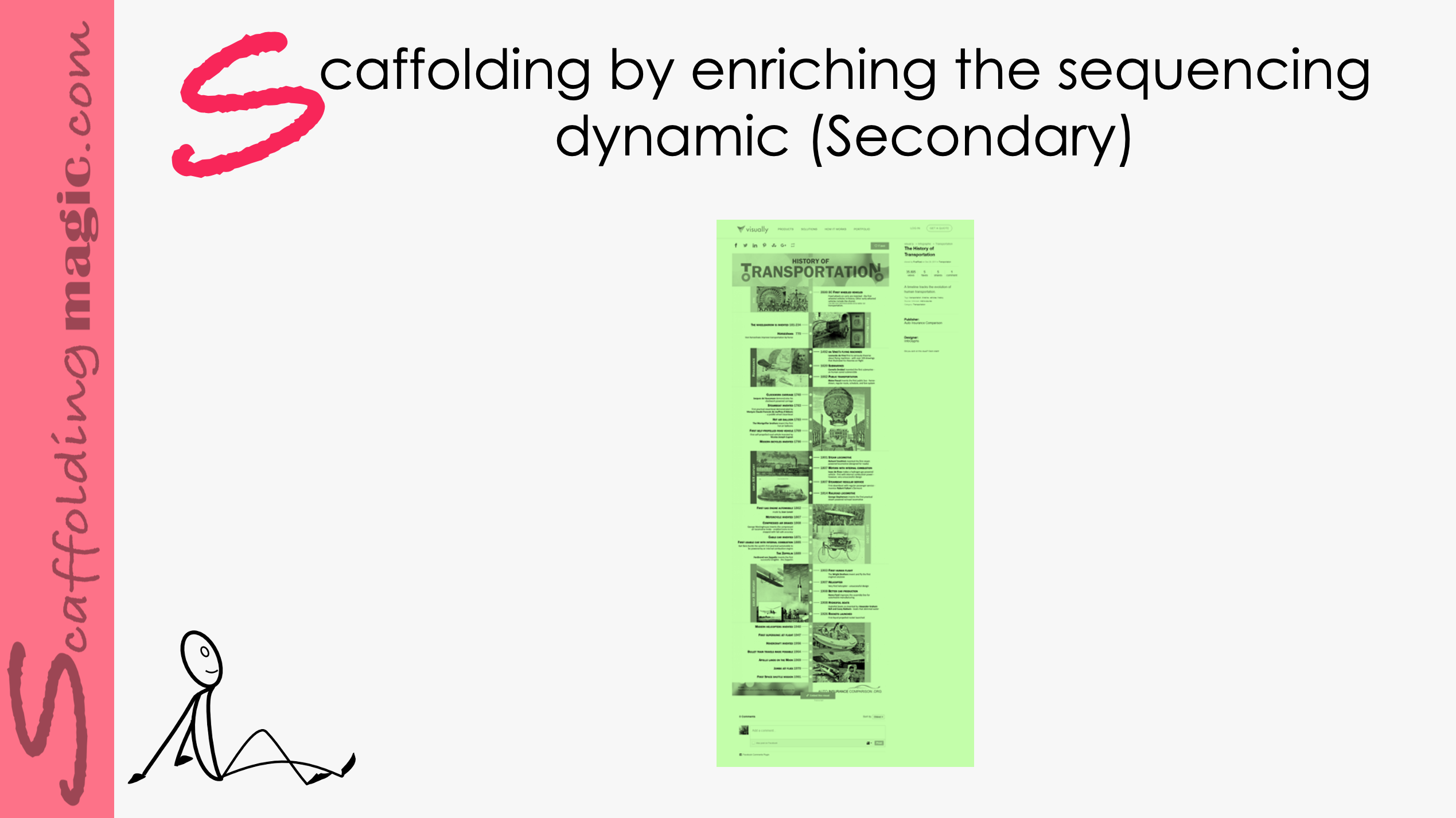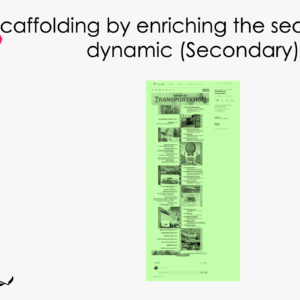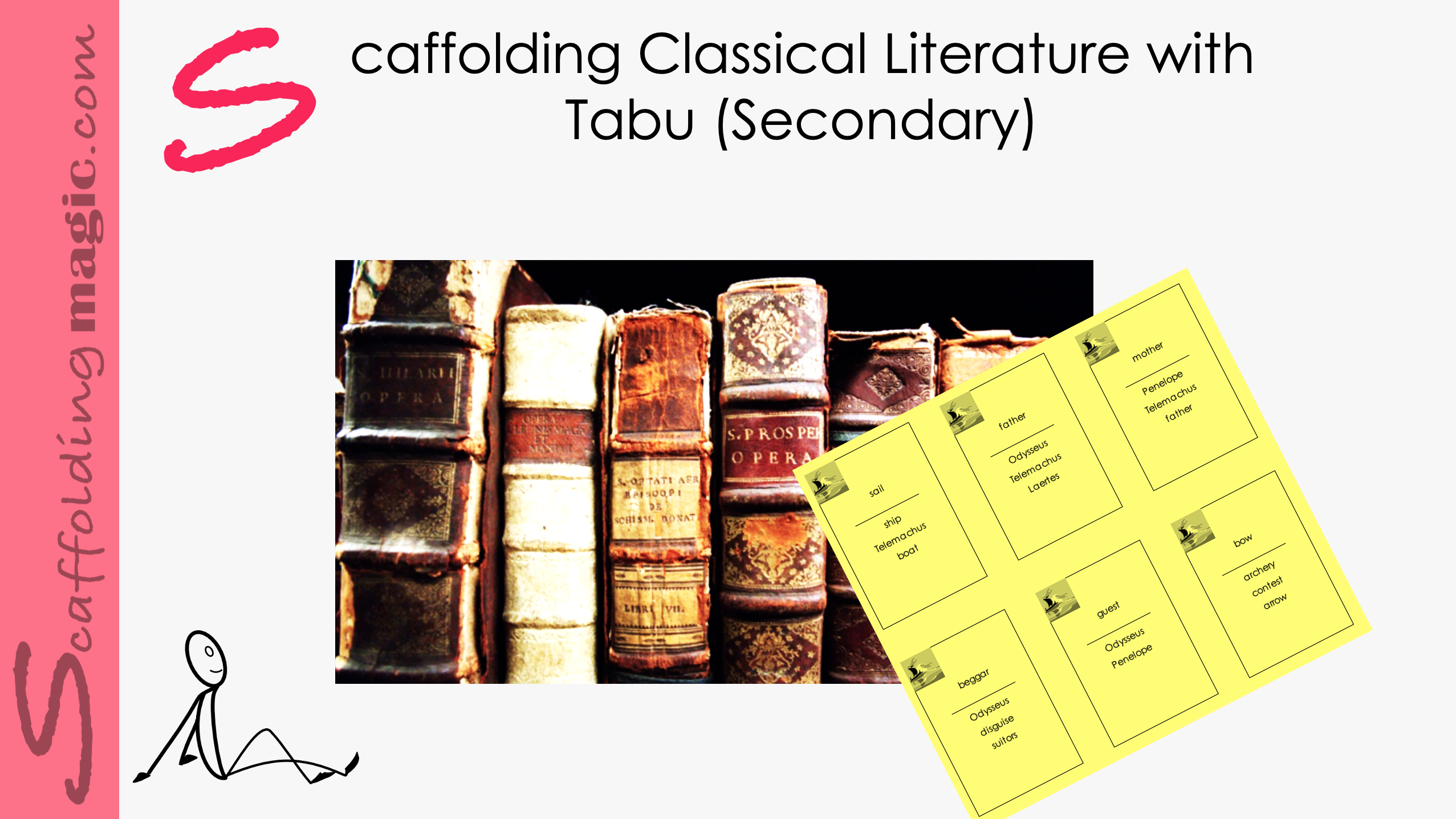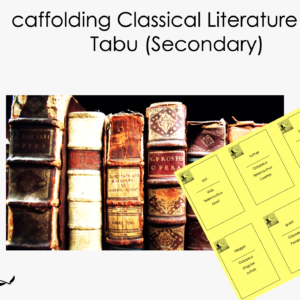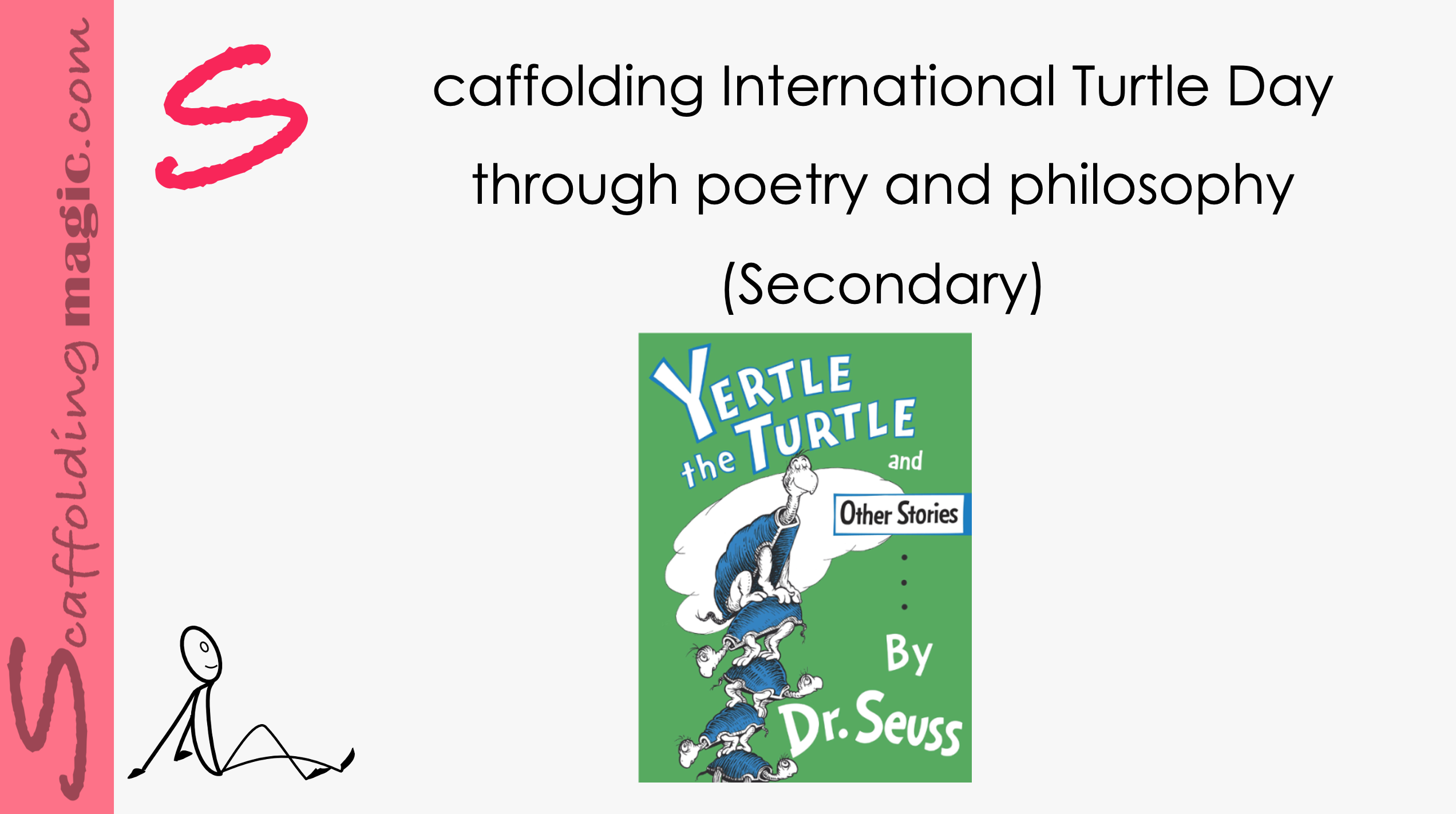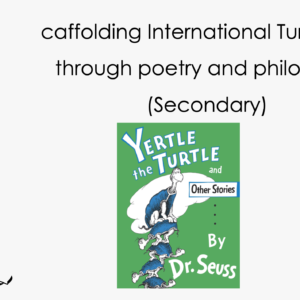Writing is one of the four cornerstone skills of every inclusive educational curriculum. It helps us form our thoughts into coherent verses and communicate over distance and time. It is a skill usually approached as a way of appeasing bands for standardised exams, but, in fact, is the perfect tool to foster the development and expression of empathy.
Scaffolding Writing to Elicit Empathy (Secondary)
$5.00
Writing is one of the four cornerstone skills of every inclusive educational curriculum. It helps us form our thoughts into coherent verses and communicate over distance and time. It is a skill usually approached as a way of appeasing bands for standardised exams, but, in fact, is the perfect tool to foster the development and expression of empathy.
Related products
-
Secondary ScaffoldsQuick View
Scaffolding Classical Literature: Read, Remember, Rendition
$5.00 Add to cartRated 0 out of 5 -
Secondary ScaffoldsQuick View
Scaffolding by Enriching the Sequencing Dynamic (Secondary)
$5.00 Add to cartRated 0 out of 5 - Quick View
- a philosopher…he had a moral message in all of his stories
- political activist…not all of his books were written with a political message
- a philosopher…he had a moral message in all of his stories
- political activist…not all of his books were written with a political message
-
Secondary ScaffoldsQuick View
Scaffolding International Turtle Day through Poetry and Philosophy (Secondary)
$5.00 Add to cartRated 0 out of 5
Scaffolding Classical Literature: Read, Remember, Rendition
Through varied techniques, the reading of authentic classic literature is an incredibly enriching experience (although your students may not appreciate or admit this until years later!). Presented creatively, you may find that otherwise uninterested students will happily participate in activities that review/clarify details of the stories and so be able to interact with the literature more confidently.
This activity focuses on the purity of Shakespeare’s language. Let the students roll it around in their mouths and feel the strangeness and how satisfying it is when they can finally pronounce some of the dialogue.
Through varied techniques, the reading of authentic classic literature is an incredibly enriching experience (although your students may not appreciate or admit this until years later!). Presented creatively, you may find that otherwise uninterested students will happily participate in activities that review/clarify details of the stories and so be able to interact with the literature more confidently.
This activity focuses on the purity of Shakespeare’s language. Let the students roll it around in their mouths and feel the strangeness and how satisfying it is when they can finally pronounce some of the dialogue.
Scaffolding by Enriching the Sequencing Dynamic (Secondary)
Sequencing is a concept that needs to be repeated throughout the education process. We need to intentionally give our students the opportunities to be able to recognise and express sequences, and we need to provide the phrases they can use to clarify the ordering of events. It might be motivating to know that studies show that students are able to recall information more accurately if they’ve been schooled in sequencing.
Sequencing is a concept that needs to be repeated throughout the education process. We need to intentionally give our students the opportunities to be able to recognise and express sequences, and we need to provide the phrases they can use to clarify the ordering of events. It might be motivating to know that studies show that students are able to recall information more accurately if they´ve been schooled in sequencing.
Scaffolding Classical Literature with Tabu
Many ESL teachers will questions the importance of teaching and using classic literature in their classes. We probably all agree that it is not easy to teach in its authentic form as it demands a high level of language proficiency and maturity for any student, and especially students those whose home language is different from that of the class text.
Nevertheless, through varied techniques, the reading of authentic classic literature is an incredibly enriching experience (although your students may not appreciate or admit this until years later!). Gamify the learning and you have students begging for more!!!
Many ESL teachers will questions the importance of teaching and using classic literature in their classes. We probably all agree that it is not easy to teach in its authentic form as it demands a high level of language proficiency and maturity for any student, and especially students those whose home language is different from that of the class text.
Nevertheless, through varied techniques, the reading of authentic classic literature is an incredibly enriching experience (although your students may not appreciate or admit this until years later!). Gamify the learning and you have students begging for more!!!
Scaffolding International Turtle Day through Poetry and Philosophy (Secondary)
A children’s book about turtles is philosophical? Oh yes it is! Theodor Seuss Geisel (Dr. Seuss), was not just a writer of children`s books, but a profound philosopher, a poet, a political advocate (sometimes controversial), and a promoter of critical thinking on all levels.
A children’s book about turtles is philosophical? Oh yes it is! Theodor Seuss Geisel (Dr. Seuss), was not just a writer of children`s books, but a profound philosopher, a poet, a political advocate (sometimes controversial), and a promoter of critical thinking on all levels.

